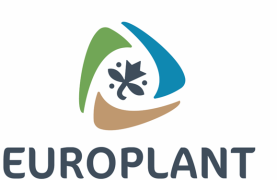Abstract
Drought severely affects potato yield and quality. The overexpression of dehydration-responsive element binding proteins/C-repeat-binding factor (DREB1A/CBF3) was previously reported to significantly increase the drought tolerance in transgenic potato (Solanum tuberosum L.), but its molecular mechanism is poorly understood. In the present study, potato cultivar Longshu No. 3 (NT) and its derived transgenic plants (T) with the Arabidopsis DREB1A gene driven by stress-inducible promoter rd29A were used as materials to study drought-stress responses of AtDREB1A in transgenic potato. The results showed, under drought stress, that the AtDREB1A gene was overexpressed in T and T presented a healthier phenotype, higher biomass, higher content of proline and lower content of malondialdehyde than the control NT, indicating that AtDREB1A overexpression improved potato drought tolerance. As the main organ of absorbing and transporting water and nutrients in soil, roots are the first to feel the stress of drought stress. Transcriptome analysis of roots showed that compared with control NT, a total of 533 annotated genes with at least two-fold changes were found to be differentially expressed in transgenic potato roots, comprising 262 up-regulated and 271 down-regulated genes. Among them, the expression of a large number of genes related to abscisic acid metabolism, receptor-like protein kinases, cytochrome P450, the glycosyl hydrolase family, peroxidase, F-box proteins and the heat shock protein family changed greatly, indicating that these genes were responsive to AtDREB1A expression and play important roles in improving drought tolerance of AtDREB1A transgenic potato. This study lays a foundation for further understanding the regulatory network of AtDREB1A gene in improving drought tolerance in potato.















